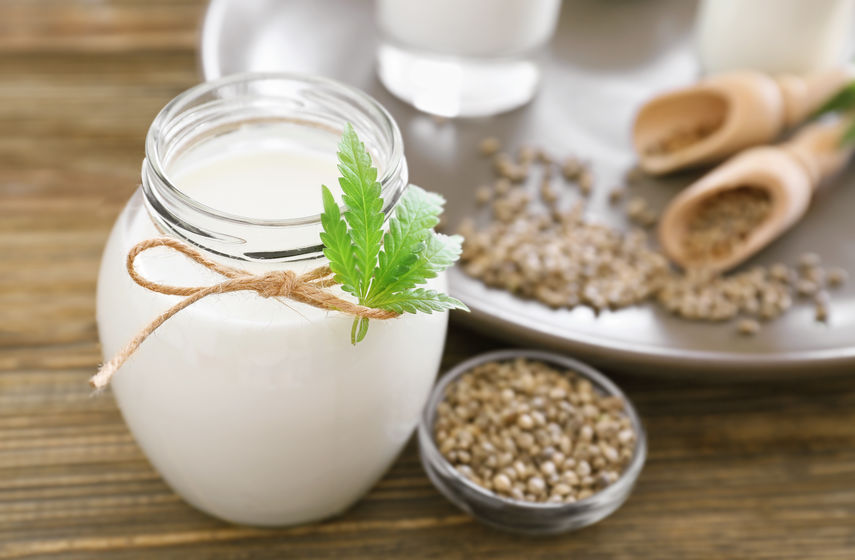By Sean Zucker –
Milk is a classic beverage often associated with a blissful and engaging morning. New concerns, however, continue to emerge regarding its negative impact, not to mention growing awareness of the dietary and allergy issues milk generates for many people. A recent study out of Loma Linda University even warned that as little as a third of a cup of dairy milk a day can increase the risk of breast cancer in women by 30 percent. More troubling still is that number jumps to 70 percent for those who drink two to three cups daily. Clearly, there is growing interest in a dairy milk substitute. But what? Soy? Almond? Oat? They are each tagged with their own issues, many specifically tied to the environment. Turns out for many, hemp milk could be the best option. It’s a new alternative gaining momentum and it may not be as radical an idea as it initially appears.
Let’s get this out of the way. No, hemp milk will not get you high or lead to you failing a drug test. It is made from the edible part of the cannabis seed and does not contain any THC, which is the psychoactive compound of marijuana. The milk is made by blending water with seeds from the hemp plant. If nothing else, its market is currently exploding. Arizton’s Hemp Milk Market – Global Outlook and Forecast, in fact, reports that the hemp milk market is on pace to hit $454 million by 2024, growing at a compound annual growth rate of approximately 16 percent between 2018–2024.
So why the sudden surge in popularity? One of the biggest draws and benefits of hemp milk is actually what’s not in it. Hemp milk is not only lactose-free, it’s generally considered safe for those who suffer from tree, nut, soy or dairy allergies – all of which often prohibit individuals from enjoying other alternatives. The New York Times reports it has a similar total fat content as whole or 2 percent cow’s milk but boasts higher levels of omega-3 and omega-6 fats and less saturated fat. The milk also contains high levels of magnesium, calcium and vitamin D.
Georgia Branch, the co-founder of Australian hemp company Hemple, recently laid out the deal on hemp milk’s taste and benefits to delicious., a food and lifestyle magazine. Admittedly having a vested interest in her product, Branch, nonetheless, described hemp milk as possessing a delightful nutty flavor and taste, with texture similar to almond and soy milk.
Beyond taste and tolerance, Branch also highlighted what may be hemp milk’s key to consumer interest. The drink is environmentally sustainable. “Hemp milk is a sustainable milk alternative. Hemp is a non-GMO plant that grows without depleting nutrients from the soil and may not require chemicals or hexanes to produce good yields. Hemp also takes less than 1/3 of the water almonds need to grow,” she told delicious.
While much more research is needed, early results suggest hemp itself may also have some sizeable medicinal properties. Sullivan University College of Pharmacy in Kentucky has released research showing hemp demonstrates promise in slowing cancer growth and may one day be a viable plant-based treatment for ovarian cancer. The lead researchers claim their findings lay the groundwork for an encouraging organic treatment with far less side effects than current offerings.
“Our findings from this research as well as prior research show that Kentucky hemp slows ovarian cancer comparable to or even better than the current ovarian cancer drug Cisplatin,” says Chase Turner, one of the lead researchers on the project. “Since Cisplatin exhibits high toxicity, we anticipate that hemp would carry less side effects. However, that needs to be tested in the future.”
Right now, hemp milk’s growth will have to depend on its other laurels.












